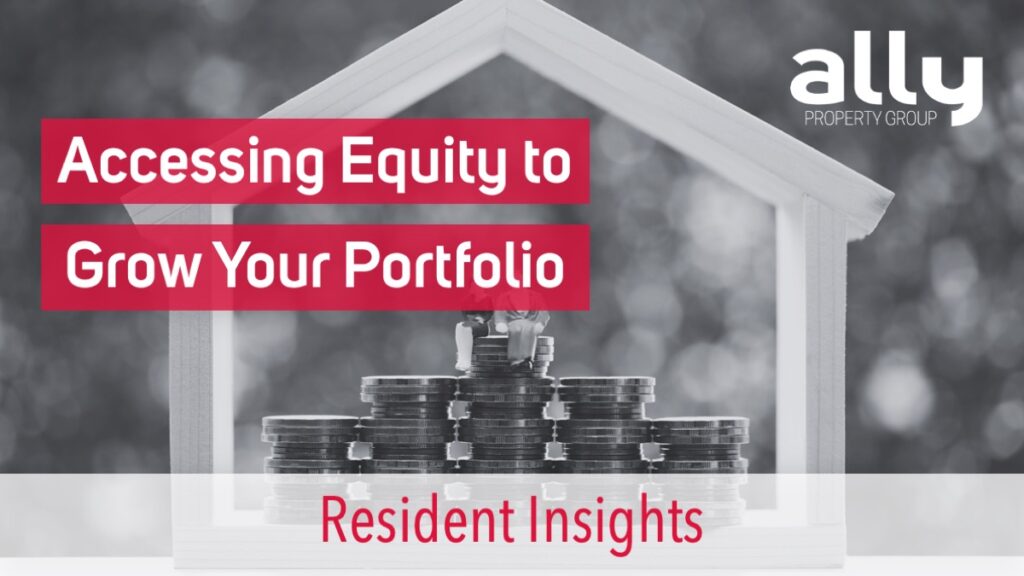6 Biggest Property Investor Regrets
Investing in property can be one of the most rewarding financial decisions you'll ever make. It has the potential to build wealth, provide steady rental income, and secure your financial future. However, as with any investment, it's not without its risks. Many property investors, especially those new to the game, make mistakes that can lead to regrets down the line. The good news? You can avoid these pitfalls by learning from those who've gone before you.
Here, we'll explore six of the biggest regrets that property investors often face and how you can steer clear of them.
- Not Considering and Planning Ahead for Tax
Taxes might not be the most exciting part of property investment, but they're crucial to consider if you want to protect your returns. A common regret among property investors is not fully understanding the tax implications of their investments from the outset.
When you purchase a property, you’re not just looking at the price tag or the potential rental income—you should also be thinking about the tax obligations that come with it. These can include stamp duty, capital gains tax (CGT), and income tax on the rental income you receive. Failing to plan for these taxes can significantly eat into your profits.
Capital Gains Tax (CGT) is one of the biggest concerns for property investors. When you eventually sell your property, you could be liable to pay CGT on any profit you make. The key to minimising this tax is to plan ahead. For instance, holding onto the property for more than a year can halve your CGT liability thanks to the 50% discount available to Australian taxpayers. But if you haven't considered this in advance, you might find yourself with a hefty tax bill that could have been reduced with better planning.
It's also important to plan ahead as an Australian expat as for the period of time that you’re living offshore, the 50% capital gains tax discount does not apply. Your tax residency at the point of sale can also impact your eligibility for the Main Residence Exemption (MRE).
Stamp Duty is another tax you can't ignore. This is a state-based tax, and the rates can vary significantly depending on where you're buying. Many investors regret not factoring stamp duty into their budget, only to be caught off guard by the substantial amount they owe upon purchasing a property. Knowing how much stamp duty you'll need to pay—and planning for it—can save you from an unpleasant surprise.
Income tax on rental earnings is something you need to plan for each year. Many investors think about the rental income they'll receive but forget to account for the income tax they'll need to pay on it. Deductions can help reduce this tax burden, but you'll need to keep detailed records of your expenses. Many investors regret not doing so when tax time comes around.
How to Avoid This Regret
To avoid the tax-related pitfalls of property investment, take the time to educate yourself on the different taxes you’ll be liable for and how they work. Consider consulting a tax professional who specialises in property investments. They can help you understand your obligations and offer strategies to minimise your tax liability. By planning for taxes from the beginning, you can avoid nasty surprises and keep more of your hard-earned returns.
- Not Considering Both Capital Growth and Yield
When you're considering a property investment, it's easy to get caught up in the numbers, focusing on one aspect of the investment while ignoring others. A common regret among investors is not striking the right balance between capital growth and yield.
Capital growth refers to the increase in the property's value over time. This is often seen as the long-term reward of property investment. However, properties with high capital growth potential are often located in areas where rental yields are lower. For example, inner-city properties may see substantial increases in value over time, but the rental income might not be as high as you'd expect when compared to the property's price.
On the other hand, rental yield refers to the return on investment you get from the rental income, relative to the property’s purchase price. High-yield properties are often found in more affordable or regional areas where rental demand is strong. However, these properties may not experience the same level of capital growth as those in more expensive or sought-after locations.
Investors who focus solely on capital growth may find themselves regretting the lack of cash flow from rental income, especially when unexpected expenses arise. Conversely, those who chase high yields might regret missing out on the significant capital appreciation that could have been achieved with a different property.
How to Avoid This Regret
To avoid this regret, it’s essential to consider both capital growth and yield when evaluating potential investments. Ask yourself what your primary investment goal is. Are you looking for long-term wealth creation through capital growth, or do you need a steady cash flow from rental income to support other financial goals? Ideally, you should aim for a property that offers a balance of both—good capital growth potential and a reasonable rental yield.
Conduct thorough research into the areas you're considering investing in. Look at historical capital growth rates, future development plans, and rental demand. This research will help you make a more informed decision and choose properties that align with your investment strategy.
- Ignoring Land Tax Implications
Land tax is another area that can catch property investors by surprise. It's one of those taxes that can sneak up on you, especially if you own multiple properties or if the value of your property increases significantly over time. Many investors regret not factoring in land tax when making their investment decisions.
Land tax is a state-based tax calculated on the value of the land you own, excluding any buildings or structures. The rates and thresholds vary by state, and some states offer exemptions or thresholds below which no tax is payable. However, if you're not aware of how land tax works, you could end up with a significant tax bill that eats into your investment returns.
For example, in states like New South Wales or Victoria, land tax can become quite expensive for property investors with multiple properties. If you own property in multiple states, you may also be liable for land tax in each state, depending on their specific rules. This can add up quickly and reduce the profitability of your investments.
How to Avoid This Regret
To avoid regretting your land tax situation, it’s crucial to understand the land tax laws in the state where you’re investing. Before purchasing a property, calculate the potential land tax liability and factor it into your overall investment costs. If you plan to own multiple properties, consider how your land holdings will impact your land tax bill.
Some investors use strategies such as purchasing properties in different states to spread their land tax liability, or they invest in properties with lower land values to minimise the tax. Consulting with a property tax specialist can also help you develop a strategy to manage land tax effectively.
By planning for land tax from the beginning, you can avoid an unexpected hit to your investment returns and ensure your property portfolio remains profitable.
- Waiting Too Long to Take Action
Time is one of the most valuable resources in property investment. Unfortunately, many investors regret waiting too long to get started or hesitating when an opportunity arises. In the property market, delays can be costly.
Property markets can move quickly. Prices in certain areas can rise sharply over short periods, and by waiting too long, you might miss out on the chance to buy at a lower price. Additionally, interest rates fluctuate, and waiting too long to secure financing can mean paying a higher rate, which reduces your returns over time.
Many investors hesitate due to uncertainty or fear of making a mistake. While it’s important to be cautious and do your due diligence, waiting too long can result in missed opportunities. Property prices generally trend upwards over the long term, so entering the market sooner rather than later can often be beneficial.
How to Avoid This Regret
To avoid the regret of waiting too long, it’s important to take action once you’ve done your research and feel confident in your decision. The property market will never be completely free of risks, but delaying indefinitely often leads to missed opportunities.
Create a clear investment strategy with timelines and action steps. This plan will help you move forward with confidence and prevent hesitation. Additionally, consider working with a mentor or investment advisor who can provide guidance and reassurance as you navigate the market.
By being proactive and decisive, you can capitalise on opportunities and start building your property portfolio without unnecessary delays.
- Not Seeking the Right Advice
One of the biggest mistakes you can make as a property investor is thinking you can do it all on your own. Property investment is complex, with many moving parts, from financing and tax considerations to legal obligations and market trends. Trying to navigate this landscape without expert advice can lead to costly errors and, ultimately, regret.
Many first-time investors make the mistake of relying solely on their own research or advice from friends and family, who may not have the necessary expertise. While self-education is important, it's equally crucial to recognise when you need professional help. Whether it's a financial advisor, a property manager, a mortgage broker, or a solicitor, having the right team of experts around you can make a significant difference in the success of your investments.
Why You Need Professional Advice
Financial Advisers can help you structure your investments to maximise returns while minimising risk. They can assist in creating a long-term strategy that aligns with your financial goals.
Mortgage Brokers can find you the best financing options, ensuring that you don't pay more than necessary in interest or fees. They can also guide you through the complexities of different loan products.
Property Managers can take the hassle out of managing tenants, dealing with maintenance issues, and ensuring your property is well-maintained and compliant with local regulations.
Solicitors or Conveyancers can help you navigate the legal aspects of property transactions, ensuring that your contracts are sound and that you're protected from legal pitfalls.
Ignoring the need for professional advice is a regret many investors face after making mistakes that could have been easily avoided with the right guidance.
How to Avoid This Regret
To avoid this regret, be proactive in building a team of trusted professionals before you even start looking for properties. Seek out advisers with experience in property investment, and don't be afraid to ask for recommendations or check references. Remember, the cost of professional advice is often far outweighed by the savings and peace of mind it provides.
Consulting with experts at key stages of your investment journey—before purchasing, during the holding period, and when selling—can help you make informed decisions that enhance your investment returns and minimise risks.
- Not Building in a Buffer of Cash
One of the most common regrets among property investors is underestimating the importance of having a financial buffer. When you invest in property, it's not just about the purchase price, mortgage payments, and expected rental income. Unexpected expenses can and do arise, and if you're not prepared, these can put a serious strain on your finances.
Consider scenarios like a sudden vacancy where your property sits empty for several months, a major repair such as a leaking roof, or an unexpected interest rate hike that increases your mortgage repayments. Without a cash buffer, these events can quickly turn a profitable investment into a financial burden.
The Importance of a Cash Buffer
A cash buffer serves as a safety net, providing you with the financial flexibility to handle unforeseen expenses without resorting to high-interest loans or, worse, being forced to sell your property at a loss. It's about ensuring that you can continue to meet your financial obligations, even when things don't go according to plan.
Many investors overlook the need for a buffer, focusing instead on maximising their investment with every available dollar. While it's tempting to put all your money into the property to maximise returns, this strategy can backfire if you're not prepared for the unexpected.
How Much Should You Have in a Buffer?
A good rule of thumb is to set aside at least 3-6 months' worth of mortgage repayments, property management fees, and other associated costs. This amount can vary depending on the specific risks associated with your property. For example, if your property is in a high-maintenance area or if you have multiple properties, you may want to increase your buffer accordingly.
How to Avoid This Regret
To avoid the regret of being caught financially unprepared, make it a priority to build and maintain a cash buffer. Start by setting aside a portion of your rental income each month until you reach your target buffer amount. This approach allows you to gradually build your financial cushion without putting too much strain on your budget.
If you're just starting out and don't have much spare cash, consider holding off on further investments until you've built up an adequate buffer. The security this provides will give you peace of mind and ensure that you can weather any financial storms that come your way.
Conclusion
Property investment can be a highly rewarding journey, but it’s not without its challenges. By learning from the regrets of others, you can avoid common mistakes and set yourself up for long-term success. Remember, the key to avoiding these six major regrets—failing to plan for taxes, not balancing capital growth and yield, ignoring land tax implications, waiting too long to take action, not seeking the right advice, and neglecting to build a cash buffer—is to approach your investment journey with foresight, strategy, and a willingness to seek out the right help when needed.
Taking the time to plan, research, and consult with professionals can make all the difference in achieving your investment goals. By doing so, you’ll not only protect your investment but also ensure that it grows steadily, allowing you to enjoy the financial benefits without the weight of regret.
Embark on your property investment journey with Ally Property Group, your trusted ally in Australia's real estate market. Our expert advisers are dedicated to crafting personalised investment strategies for Australian expats and residents alike, aiming to enhance your portfolio and maximise returns. Start building your wealth with Ally Property Group, where strategic insights, analysis and modelling leads to prosperous investments.
We’re more than just property advisers. As Australian expats ourselves, we've navigated the intricate world of property investment both at home and abroad. With a legacy rooted in financial services, we offer a holistic, transparent, and strategic approach, ensuring you're equipped with the knowledge and confidence to make informed decisions.
Book an obligation-free, complimentary consultation here today.
General Information Warning: The information contained herein is of a general nature only and does not constitute in any way, personal advice. You should not act on any recommendation without considering your personal needs, circumstances, and objectives. We recommend you obtain professional property investment advice specific to your circumstances.
Pay it forward! Share this article with your friends and network.



